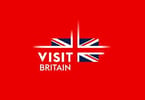Up to nine million British travellers who put together their own ‘DIY’ holiday breaks this year run the risk of losing their money if their travel company goes under – because they have paid for their flights and hotels by debit card, cash or cheque.
Airline regulator the Civil Aviation Authority (CAA) predicts that as many as 20 million passengers will travel on self-planned holidays this year, having first surfed the internet for low-cost flights and then separately booked hotels. Such holidays do not enjoy the same consumer protections as traditional package holidays, which are covered by Atol (Air Travel Organisers’ Licensing) bonding as a requirement of the Package Travel Regulations. However, protection is provided if you pay for the different elements of your DIY holiday using a credit card. Your card company is then jointly liable for breaches of contract or ‘misrepresentations’ by your travel firms.
This is particularly useful if the travel company goes out of business, reckons Holiday Which?. ‘You are covered as long as the costs are more than £100 but less than £30,000 and the amount you put on your card isn’t over £25,000,’ the group advises.
But a CAA survey of 2,464 DIY holidaymakers found that 43 per cent of them paid by a means other than credit card – and that three-quarters of them did so under the mistaken impression that they enjoyed the same level of financial protection as credit card users.
‘The research shows that people paid for their holidays using their debit card, cheque or cash to avoid the high transaction fees that credit card companies attract,’ explains Atol’s David Clover. ‘They are saving a bit on transaction fees but, unfortunately, the protection that they would have got from their credit card doesn’t apply. We reckon that there could be in the region of 9 million people who use debit cards [to buy holidays] and are more at risk than anybody else.’
The issue of protection for holidaymakers has come to the fore following a spate of holiday company collapses – such as no-frills carrier EUJet, which left 39,000 passengers in the lurch when it went bankrupt in 2005; tour operator Travelscope, which folded last year; and Oasis, the budget airline that flew between London and Hong Kong, which stopped flying last month. In the past 12 months, the Atol scheme refunded advance payments for 21,000 frustrated holidaymakers on cancelled trips and bailed out more than 2,000 customers of failed tour operators who were stranded abroad. The CAA spent £7.5m on repatriations and refunds for that period.
However, Atol coverage has been shrinking from near-total (98 per cent of air travellers) 10 years ago to 61 per cent last year, according to Holiday Which? ‘There is a general lack of awareness by consumers as to what kind of protection they enjoy – if any,’ says Frank Brehany of consumer group Holiday Travelwatch. ‘The situation is confused partly by the industry itself. For example, Abta’s [Association of British Travel Agents]own protection is qualified, in that if a tour operator or travel group goes bust and has done so for fraudulent reasons, they won’t provide cover. It’s no wonder holidaymakers are confused.’
The discrepancy between the perception and reality of protection for holidaymakers can be stark. In the case of EUJet, a CAA survey of the disgruntled would-be passengers found that two-thirds of them had believed their flights and money were Atol-protected. But only 130 of the 39,000 – who had bought their flights as part of a package – were protected. ‘But consumer protection isn’t just about the Atol bonding. The Package Travel Regulations [PTR] provide a comprehensive range of services – not least clear rights of redress for accident victims,’ says Clive Garner, a partner at specialist solicitors Irwin Mitchell. His firm advised more than 3,000 people who suffered accidents or were ill on holiday last year. Holiday Travelwatch has been calling on the government to introduce a compulsory branding or logo for travel products operating outside Atol or PTR to warn buyers that they are unprotected.
Until last month, the Atol scheme operated through tour operators lodging financial guarantees. However, that has now been replaced by a new £1 levy on package holidaymakers. The old scheme was in urgent need of reform, as it was £20m in the red. Consumer protection for holidaymakers is ‘all over the place’, reckons Claire Lilley, head of research at Holiday Which?. ‘That’s why we welcome the introduction of the £1 levy,’ she says.
The £1 charge should make life easier for consumers, as paying it will be a clear signal that they have booked a package holiday and therefore have protection.
There has been a protracted and often bitter argument in the industry as to what constitutes a ‘package’ and therefore is protected by the regulations. The Department for Business, Enterprise and Regulatory Reform this year produced guidance indicating that agents who ‘dynamically package’ holidays (that is, assemble the different components of holidays themselves) fall within the scope of the scheme, but that trips put together by DIY holidaymakers do not.
‘What we are concerned about is when you book a flight on Easyjet’s website and then click through to another site to pay for your hotel,’ says Lilley. ‘As far as the consumer is concerned, that hotel site is branded exactly the same way as the flight site and so you, the consumer, think you’re paying the same company – but it’s a completely different company; you are buying two separate elements. You’re not buying a package and therefore you are not protected.’
guardian.co.uk
ŠTA UZIMATI IZ OVOG ČLANKA:
- Holiday Travelwatch has been calling on the government to introduce a compulsory branding or logo for travel products operating outside Atol or PTR to warn buyers that they are unprotected.
- For example, Abta’s [Association of British Travel Agents]own protection is qualified, in that if a tour operator or travel group goes bust and has done so for fraudulent reasons, they won’t provide cover.
- In the case of EUJet, a CAA survey of the disgruntled would-be passengers found that two-thirds of them had believed their flights and money were Atol-protected.






















